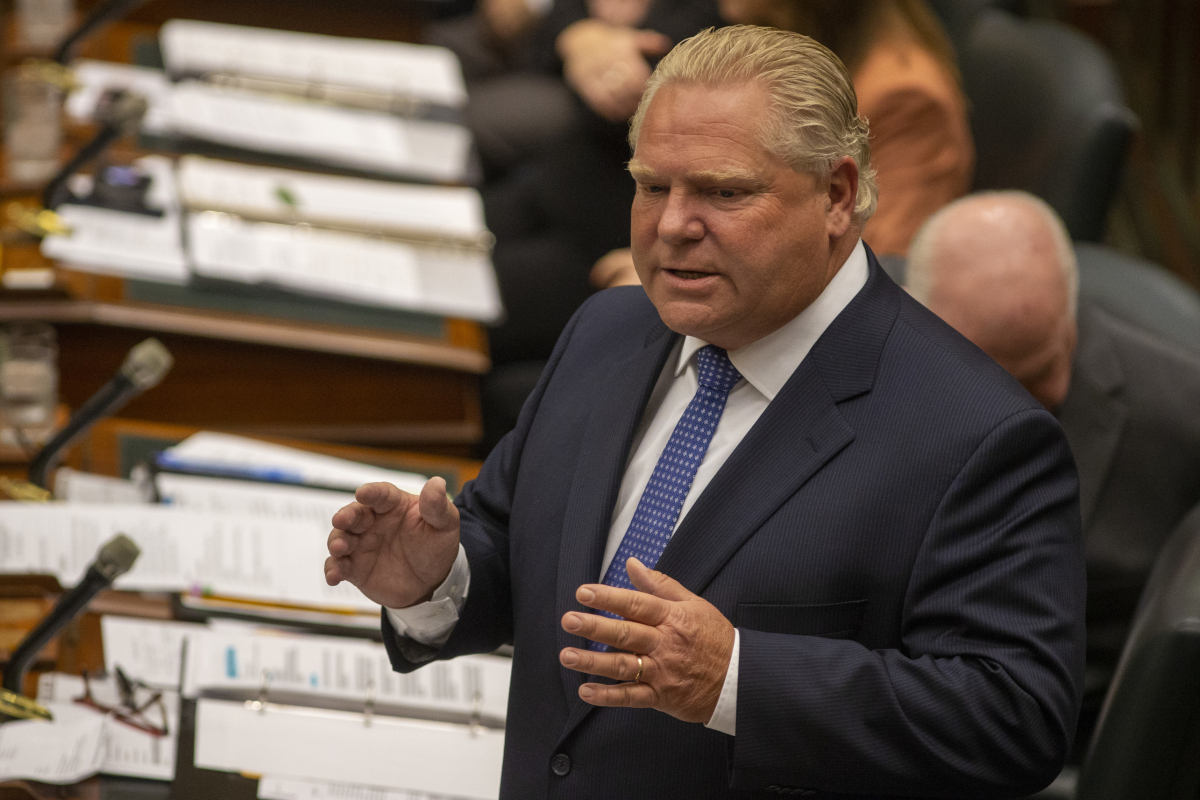Support strong Canadian climate journalism for 2025
The Ford government won’t apologize for its use of a controversial special zoning order to approve developments with environmental concerns, Progressive Conservative MPP Parm Gill said Tuesday.
Gill, the parliamentary assistant to Municipal Affairs Minister Steve Clark, made the remarks during question period after the opposition raised an investigation by Canada’s National Observer, released last week, which found the government had used municipal zoning orders (MZOs) to override environmental issues 14 times. An MZO is an unappealable order that allows the minister of municipal affairs to skip the local planning process and decide how land can be used.
“How can the minister justify issuing so many MZOs when we know they should be used sparingly, as to not override important planning processes?” asked Ontario Liberal environment critic Lucille Collard.
“When the government uses this exceptional power under the guise of recovery measures to allow for the destruction of protected wetlands, endangered species or important agricultural land, it may be in the interest of some developers, but it is certainly not in the public interest. Economic recovery is important, but not at the cost of the future generations who will have to grapple with the impact of these decisions.”
Gill did not directly address the environmental impact of the orders, but instead emphasized examples where MZOs have been used to fast-track long-term care homes and medical supplies. (Some MZOs did enable urgent projects, but the Ford government has also used them to allow developments on farmland and wetlands.)
Gill also said the previous Liberal government used MZOs as well — although the Progressive Conservatives have used them far more frequently and for more controversial projects.
“One difference between our government and the previous Liberal government is that the Liberals built only 600 long-term care beds, compared to the 3,600 long-term care beds that our government has built by issuing these much-needed MZOs to help communities right across this province, and we will not apologize for that,” Gill fired back.
The Observer investigation showed that in nine cases, environmentally concerning MZOs benefitted developers who donated significant sums to the Progressive Conservatives.
People with names matching those of executives and senior staff for those developers linked to the nine most controversial projects have collectively donated at least $112,915 to the party over the last three years, the analysis showed. Three developers also contributed $150,000 in 2018 to the third-party political advocacy group Ontario Proud, which supported the PCs in that year’s election.
The province has said political donations don’t play a role in its decision to issue MZOs, and that the orders are aimed at critical infrastructure and boosting Ontario’s economic recovery from COVID-19.
Greenbelt funding announcement a distraction, critics say
Later Tuesday, the Ontario government announced a $12-million infusion of cash over the next three years for the Greenbelt Foundation, a non-profit primarily funded by the province that stewards protected Greenbelt lands.
“The Greenbelt Foundation welcomes funding from the Government of Ontario and will invest in projects, programs, and outreach initiatives that encourage people to engage with, experience, and enjoy everything the Greenbelt region has to offer,” said Greenbelt Foundation CEO Edward McDonnell in a statement.
The government’s announcement didn’t point out that the $12 million is a renewal and maintains the same level of funding the foundation typically receives from the province. The deal was finalized in December, the foundation said in a separate press release.
Critics questioned why the government would make the announcement now, and said it was an attempt to distract from a flurry of negative media attention about the Ford government’s use of MZOs and a planned highway that would cut through the Greenbelt.
“I’m glad the Ontario government is starting to recognize the importance of recycling, but not when it comes to recycling their funding announcements,” Collard said in a statement.
NDP environment critic Sandy Shaw said the timing was “suspect.”
“I think people are right to be skeptical of this announcement,” she said in a phone interview. “They’re right to imagine that this is a diversionary tactic.”
In a statement, Green Party Leader Mike Schreiner said the government is “feeling the heat” from public opposition to MZOs and the highway builds.
“The government's Greenbelt announcements will not cover up the destruction from these and other decisions,” he said.
“I support funding for the Greenbelt Foundation, but I question the government's priorities when they're building highways through large sections of the Greenbelt, gutting conservation authorities and destroying wetlands.”
The office of Environment Minister Jeff Yurek didn’t respond to questions about the timing of the announcement.
In an email, Greenbelt Foundation spokesperson Michael Young said the announcement was delayed by the COVID-19 pandemic, which was worsening in December.
“I think the general feeling was that COVID-19 was rightly top of mind at the end of last year and so this announcement should wait,” he said.
The investment will be used to plant trees, enhance recreational activities and support green infrastructure, the government said in its press release. It will also ensure the foundation can maintain research programs and continue public outreach.






Comments
The Ford Government is a lazy government. Instead of looking for sensible, progressive, and sustainable solutions it uses the bully pulpit of electoral "victory" to push through short term and self serving measures that will become albatrosses for future government. One could almost imagine that they are following the autocrat's playbook the late unlamented POTUS used to trash his entire nation. Petty autocrats should re-think their assumptions.
Because...of course they will. #$@&#